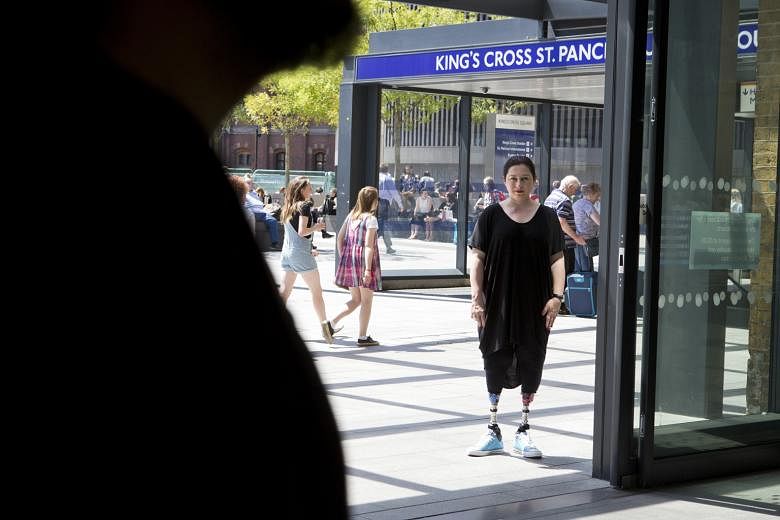LONDON • For a moment, after a suicide bomb ripped off both her legs, Ms Gill Hicks thought she had died.
It took an hour for emergency medical workers to make it to the deepest tunnel of the London subway, and she drifted in and out of consciousness. But she remembers vividly finding a label on her wrist in the hospital: "One unknown, estimated female".
This label transformed her life perhaps as much as the July 7 attacks that struck at the heart of London's public transport system 10 years ago.
"What that label told me was that people were prepared to risk their lives and save as many 'unknowns' as they could - regardless of faith, colour, gender or nationality - all that mattered was that I was a precious human life," Ms Hicks, 47, said in a recent interview near the King's Cross subway stop, the site of the attack. "For me, that created a powerful shield against hatred."
The 7/7 bombings, as they came to be known in Britain, are in many ways the country's 9/11. Four suicide bombers blew up three subway trains and one double-decker bus during the morning rush hour, killing 52 civilians and injuring more than 700. It was an awakening for a country that had long prided itself on its laissez-faire multiculturalism: All the bombers were Muslims who had been born and raised in Britain. Their leader, Mohammad Sidique Khan, 30, was a university-educated youth worker with a Yorkshire accent.
Over the past decade, security measures have been tightened, terrorism laws extended and civil liberties curbed - with some success.
But as Britain and other countries face the next generation of terrorists, one thing is still largely missing from counter-terrorism strategy, Ms Hicks said: empathy with the terrorists. Not because they deserve it, but because it is the best hope to defeat them.
Once the publisher of an architecture magazine, Ms Hicks now runs Making A Difference, an organisation dedicated to counter-extremism and peace-building.
"Only if we can understand why people do this, how even educated young professionals can be persuaded to kill and maim innocent people, can we prevent it from happening again," she said.
"Prevention should be one of our greatest priorities."
NEW YORK TIMES

